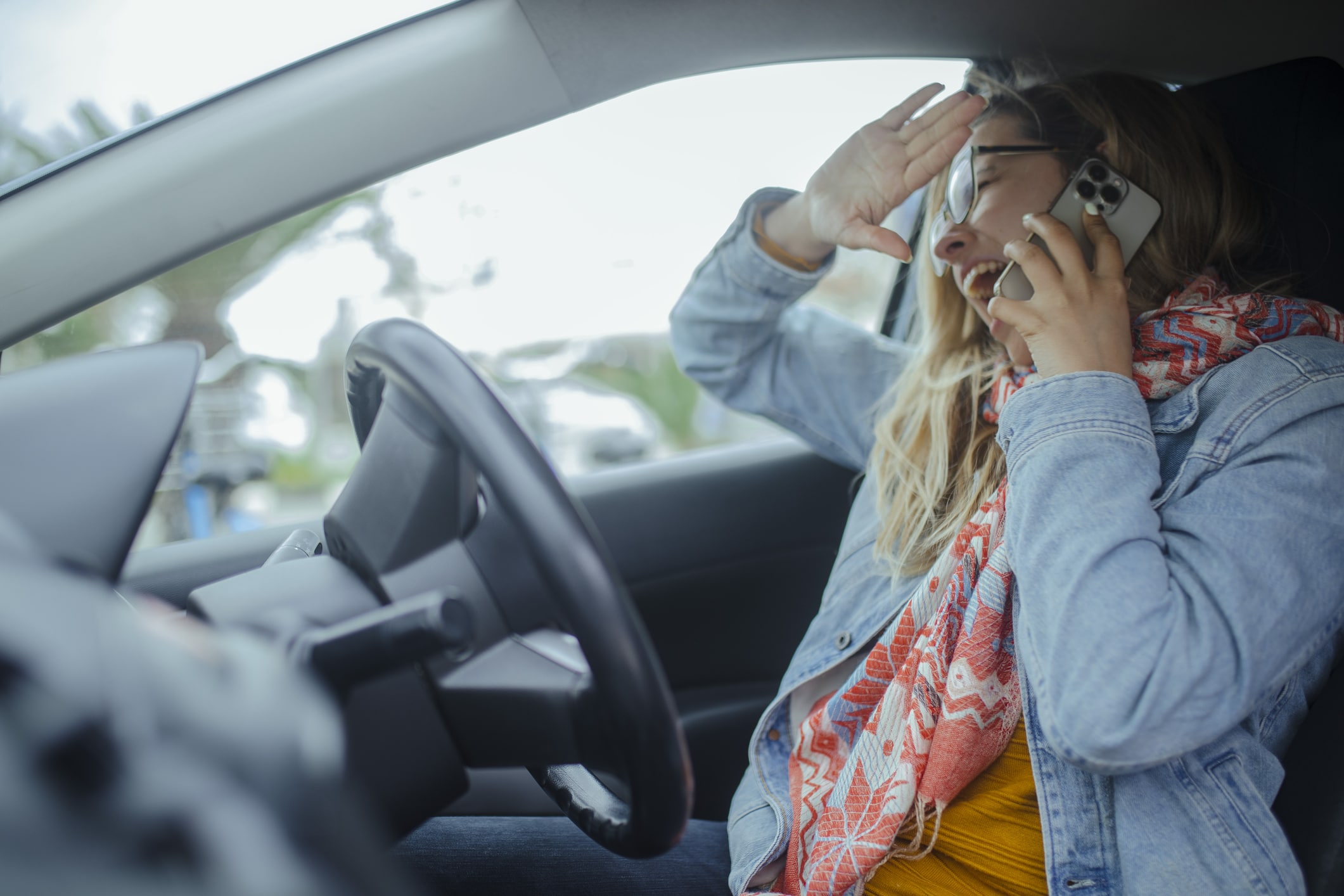Distracted driving is driving while also being engaged in some other activity – for example, tending to children or pets, texting or talking on a cell phone, eating, applying make-up, or reading.
All of these activities and others take a driver’s attention away from the task of driving, and all distracted driving compromises the safety of the driver, passengers, bystanders, and people in other vehicles.
In the state of California, car accident attorneys know that if you are injured in a traffic collision by a distracted driver, you may be entitled to full reimbursement for your medical expenses, lost wages, and all other related damages.
Texting while driving is perhaps the most dangerous – as well as the most popular – kind of distracted driving. AAA has conducted research which found that texting is responsible for what is called “cognitive” driver distraction – decreased attention to the task of driving.
The researchers learned that texting drivers are 23 times more likely to be in a crash than drivers who concentrate exclusively on their driving. At 60 miles per hour, a vehicle travels the length of a football field in under 1.5 seconds, so taking one’s attention off the road – even for only a moment – to read or send a text can have genuinely catastrophic results.

Traffic collisions, according to the National Highway Traffic Safety Administration, are already the leading cause of death for persons ages 15 to 19 years old – and teens are also texting more than persons in any other age group.
It is imperative for teen drivers to use the utmost caution when operating motor vehicles and to avoid all distractions while driving, but especially texting. The inexperience and reckless behavior of many teenagers can place them in circumstances that dangerously raise the risk of a tragic traffic collision.
HOW MANY TRAFFIC ACCIDENTS INVOLVE TEXTING?
Another study, this one conducted by the Pew Research Center, tells us that more than one in four driving-age teens in the United States – 26 percent – admit to texting while driving, and nearly half of all teens ages 12 to 17 – 48 percent – say they have been passengers in cars when drivers were texting.
According to the National Safety Council, texting while driving is now the reason behind 1.6 million traffic crashes every year in the United States. Right now, in 2017, nearly one in four traffic collisions involve texting.
Obviously, if you are the parent of a teenager who is driving, you must discuss texting and driving with your teen. Parents should set a zero tolerance policy for their teens’ cell phone use while driving.
Tell your teens to send any important texts before or after driving and to pull off the road to a safe spot if texting or talking on the phone becomes unavoidable while driving. Parents should also set an example for their teens by never using their own cell phones while driving.

In the state of California, driving while texting is considered negligent driving under the law.
If a California driver causes an accident with injuries because he or she was texting while driving, that driver will very likely face criminal charges, and that driver may also end up as a defendant in a personal injury lawsuit.
If that happens, the injury victim’s lawyer can probably use cell phone records to prove that the driver was texting – and thus driving negligently.
IF A TEXTING DRIVER INJURES YOU, WHAT IS YOUR RECOURSE?
On the other side of the equation, if you are the person who is injured by a negligent driver in California – whether that driver was texting or driving negligently in some other way – you have legal rights and options that you should discuss with a skilled personal injury attorney.
Under California law, the injured victims of negligence are entitled to complete reimbursement for their medical treatment and for all other accident-related losses and damages.
Of course, it’s not only California’s teens who text while driving. Plenty of adults are guilty of the same kind of distracted driving. Every driver in this state should know that in most cases, California law prohibits all motorists from using cellphones while driving, with only two exceptions.
Drivers age 18 and over may have conversations using the hands-free mode, and all drivers may make necessary emergency calls to the police, fire, or medical authorities.
However, no driver in this state may read, write, or send text messages, instant messages, or emails while driving. The law also bans the use of tablets and GPS devices while driving.

The unlawful use of a cellphone while driving is considered an infraction in California. A first offense leads to a $20 fine, and for a second or subsequent offense, the fine is $50. Once fees and assessments are added, however, the total cost to a driver may exceed several hundred dollars.
No points are added to the driver’s license, but of course, the penalty for texting should not be a driver’s main concern. Texting while driving can be deadly.
WHAT ARE “PRIMARY” AND “SECONDARY” DRIVING OFFENSES?
The cellphone and distracted driving laws in California are “primary” offenses, which means that a police officer who sees a violation can stop that driver in traffic.
But California’s prohibition on the use of hands-free devices by underage drivers is a “secondary” offense, meaning a police officer must stop that underage driver for another violation before he or she can cite the driver for the unlawful use of a hands-free device.

Cell phones, of course, are only one source of distraction for drivers in California. It cannot be said loudly or frequently enough; when you are driving, keep your eyes on the road and concentrate on driving.
If you don’t, you may find yourself on the wrong side of a personal injury claim – and that’s if you are lucky and you don’t end up in the emergency room or the morgue.
If you are injured by another driver’s negligence in California, you can file a personal injury claim with a personal injury attorney’s help and seek compensation for your medical expenses, lost wages, and any additional damages.
A good personal injury lawyer can assess the particulars of your case, gather evidence and line up witnesses on your behalf, and fight aggressively for the justice and compensation you deserve.




